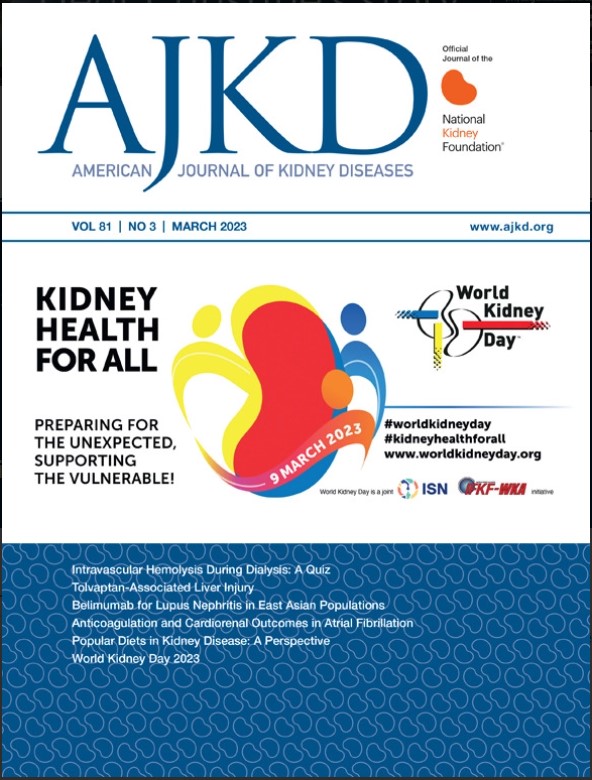Treatment of Autosomal Dominant Polycystic Kidney Disease.
IF 9.4
1区 医学
Q1 UROLOGY & NEPHROLOGY
引用次数: 0
Abstract
Autosomal dominant polycystic kidney disease (ADPKD) is a chronic systemic disease that affects all races and ethnicities. It is the fourth leading cause of end-stage kidney disease, and it has a heterogenous phenotype ranging from mild to severe disease. Identifying patients with ADPKD who are at risk of rapid progression can guide therapeutic decisions. Several tools to predict disease severity are available, based on features such as total kidney volume from magnetic resonance imaging, PKD genotype, eGFR trajectory, and the occurrence of hypertension and urologic complications early in life. Over the past decade, more evidence has emerged regarding optimal ADPKD management. The HALT PKD trial supported intensive blood pressure control in patients younger than 50 years of age with preserved kidney function. A healthy lifestyle, including maintaining a healthy weight, salt restriction and smoking cessation, is likely to be beneficial. Tolvaptan, the only disease-modifying agent for ADPKD patients that are at risk of rapid progression, is gaining wider use, but is still limited by its side-effects. This is an exciting time for the ADPKD community as multiple promising interventions are in the pipeline and being investigated.常染色体显性多囊肾病的治疗。
常染色体显性多囊肾(ADPKD)是一种影响所有种族和族裔的慢性全身性疾病。它是导致终末期肾病的第四大原因,具有从轻度到重度的不同表型。识别有快速进展风险的 ADPKD 患者可以为治疗决策提供指导。目前有几种预测疾病严重程度的工具,它们基于磁共振成像得出的肾脏总体积、PKD 基因型、eGFR 轨迹以及生命早期高血压和泌尿系统并发症的发生等特征。在过去十年中,有关 ADPKD 最佳治疗的证据越来越多。HALT PKD 试验支持对 50 岁以下、肾功能保留的患者进行强化血压控制。健康的生活方式,包括保持健康的体重、限制食盐摄入和戒烟,可能对患者有益。托伐普坦是唯一一种针对有快速进展风险的ADPKD患者的疾病改变药物,正在得到越来越广泛的应用,但仍然受到副作用的限制。对于 ADPKD 社区来说,这是一个令人兴奋的时刻,因为有多种前景看好的干预措施正在酝酿和研究中。
本文章由计算机程序翻译,如有差异,请以英文原文为准。
求助全文
约1分钟内获得全文
求助全文
来源期刊

American Journal of Kidney Diseases
医学-泌尿学与肾脏学
CiteScore
20.40
自引率
2.30%
发文量
732
审稿时长
3-8 weeks
期刊介绍:
The American Journal of Kidney Diseases (AJKD), the National Kidney Foundation's official journal, is globally recognized for its leadership in clinical nephrology content. Monthly, AJKD publishes original investigations on kidney diseases, hypertension, dialysis therapies, and kidney transplantation. Rigorous peer-review, statistical scrutiny, and a structured format characterize the publication process. Each issue includes case reports unveiling new diseases and potential therapeutic strategies.
 求助内容:
求助内容: 应助结果提醒方式:
应助结果提醒方式:


